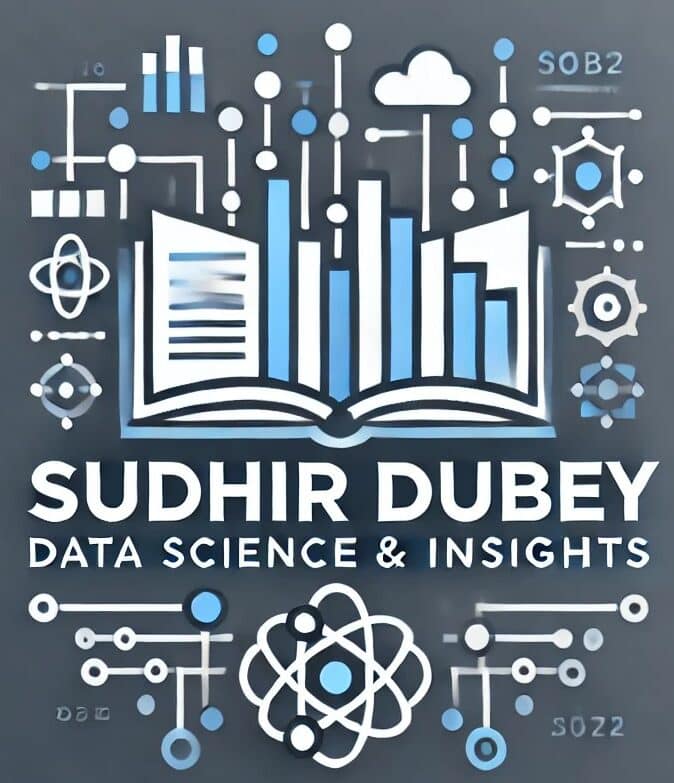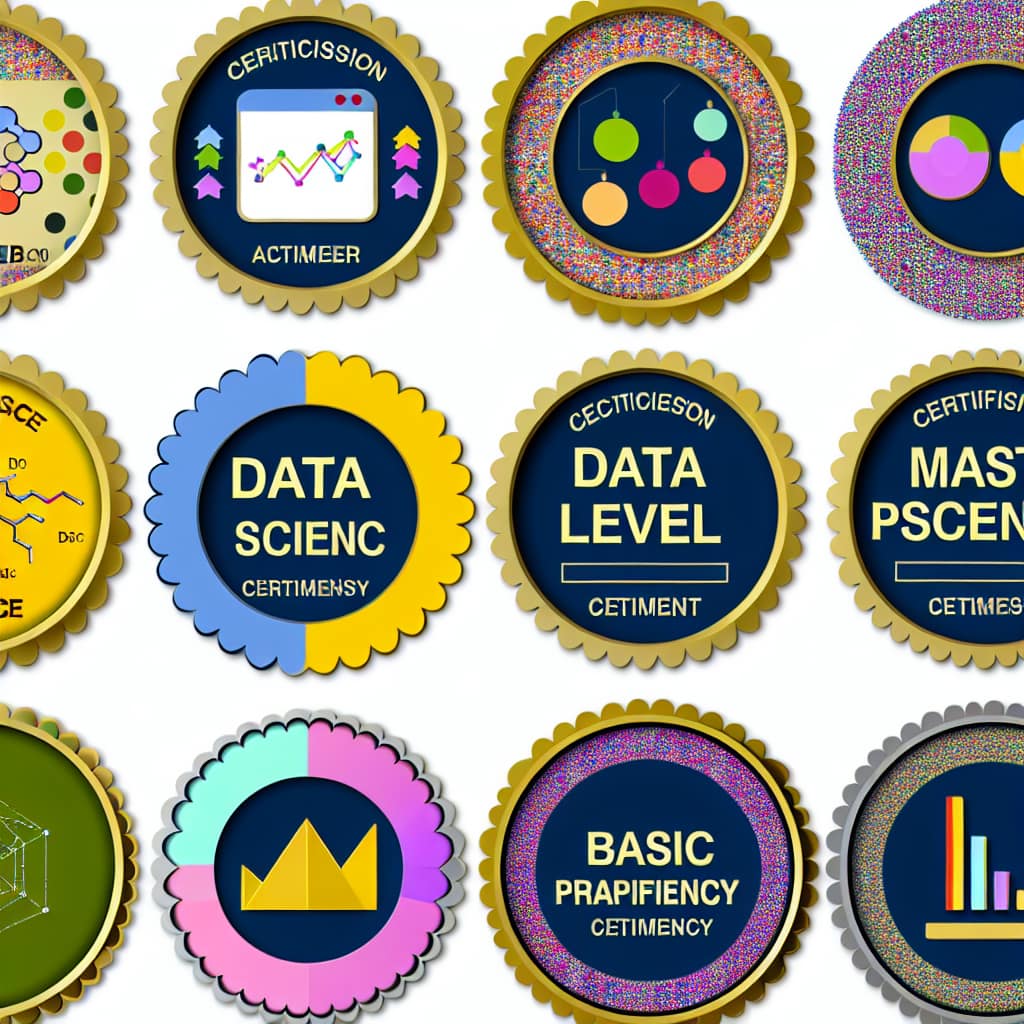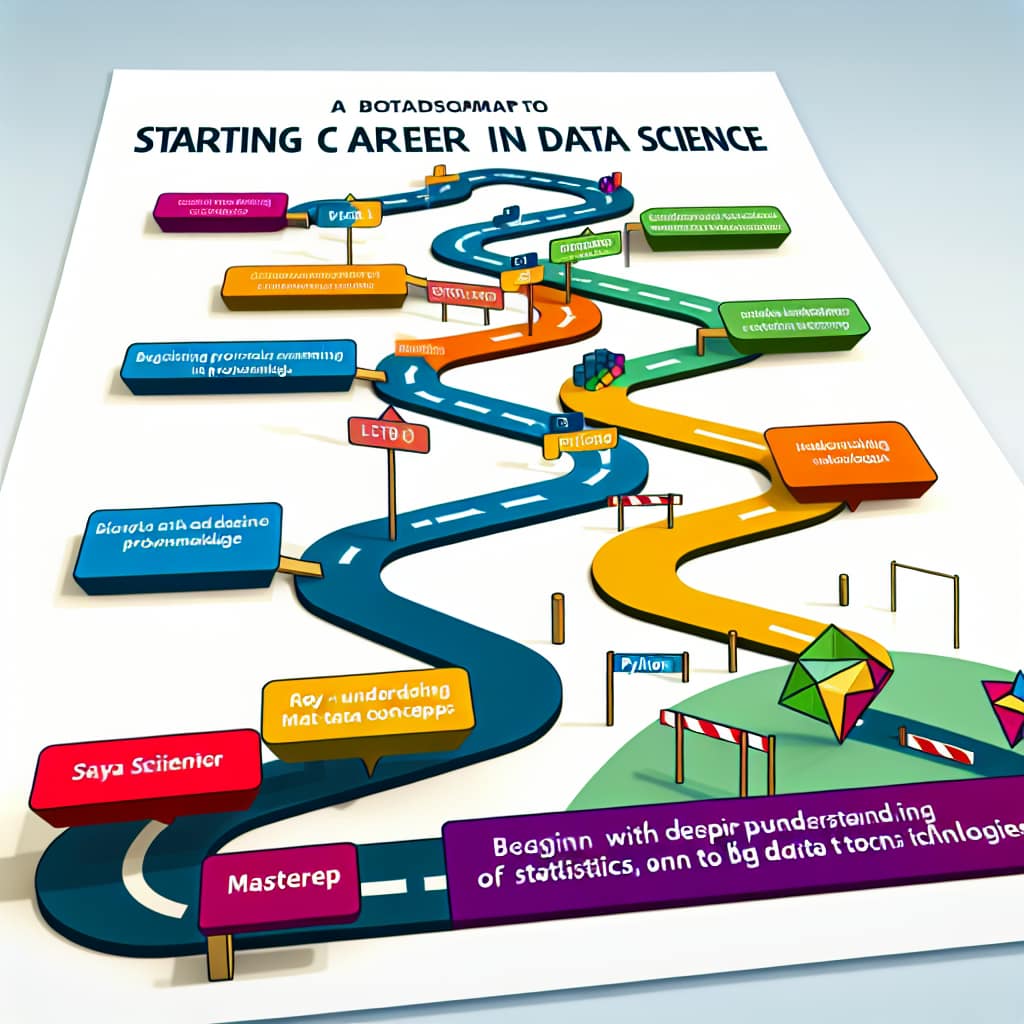Top Data Science Certifications in 2025: Unlock Your Career Potential
In today’s fast-paced technological landscape, earning data science certifications has become crucial for professionals seeking to excel in this dynamic field. Data science certifications not only validate your skills but also position you as a competitive candidate in the job market, eager to solve industry-specific problems with real-world impact. This article will explore the most essential data science certifications of 2025, their importance, and how they can propel your career forward. Stay tuned as we delve into each certification’s unique benefits, application frameworks, and potential career opportunities.
Table of Contents
The Importance of Data Science Certifications
With the exponential growth of data, organizations are increasingly relying on data science to drive strategic decisions and innovations. In this context, data science certifications are vital in demonstrating expertise and understanding of the latest methodologies and technologies. Certifications help bridge the skills gap between theoretical knowledge and practical application, making professionals more effective and efficient in deploying data solutions.
Furthermore, certifications offer an avenue for continuous learning, enabling professionals to stay updated with emerging trends and technologies. They also foster credibility and trust with employers, who view certified candidates as more proficient and reliable.
Top Data Science Certifications in 2025
1. Certified Analytics Professional (CAP)
The CAP certification is renowned for its rigorous standards and comprehensive coverage of analytics processes. Offered by INFORMS, it emphasizes problem framing, methodology selection, and model construction. Read more about Certified Analytics Professional (CAP) on our website.
2. Microsoft Certified: Azure Data Scientist Associate
This certification targets professionals adept in Azure Machine Learning and other data science techniques. It’s ideal for those interested in leveraging Microsoft’s cloud offerings for data solutions.
3. Google Professional Data Engineer
Designed for those aiming to manage data solutions on Google Cloud, this certification focuses on designing, building, and operationalizing data processing systems.
For a detailed study guide, see our page on Google Professional Data Engineer.
4. Data Science Council of America (DASCA) Senior Data Scientist
Recognized globally, this certification provides a robust foundation in data engineering, science, and big data analytics, preparing professionals for senior roles in the industry.
5. SAS Certified Data Scientist
SAS offers a progressive learning path, from data analysis using SAS and statistics to machine learning, providing a deep dive into various data science techniques.
6. TensorFlow Developer Certificate
This certification is perfect for professionals focused on deploying AI models using the TensorFlow library, emphasizing practical, hands-on learning.
7. IBM Data Science Professional Certificate
IBM’s certification is designed for beginners, offering a comprehensive introduction to data science, Python programming, and AI applications.
Applications and Frameworks in Data Science
Data science applications have evolved to touch virtually every industry, from healthcare to finance. Professionals now utilize advanced frameworks such as TensorFlow, PyTorch, and Apache Spark to build machine learning models and run big data analytics.
The integration of AI and machine learning algorithms into existing systems enables organizations to gain insights and drive innovation. For instance, healthcare providers leverage data science to predict patient outcomes and improve treatment plans, while financial institutions use it for risk assessment and fraud detection.
Read more about cutting-edge frameworks like TensorFlow on their official site.
Real-World Examples and Case Studies
Consider a retail company leveraging data science to enhance customer satisfaction. By analyzing purchasing patterns and feedback, the company crafted personalized marketing strategies, resulting in a 20% increase in sales over six months.
Another example involves a logistics firm using machine learning models to optimize delivery routes. By predicting traffic patterns and choosing the most efficient routes, the company reduced fuel consumption by 15%, illustrating the impactful role of data science in operational efficiency.
Frequently Asked Questions
What is the best data science certification for beginners?
The IBM Data Science Professional Certificate is highly recommended for beginners seeking comprehensive knowledge in data science fundamentals.
Do certifications guarantee a job in data science?
While certifications significantly enhance your chances, securing a job also depends on practical experience and the ability to demonstrate your skills.
How long does it take to complete a data science certification?
The time commitment varies by program; some certifications can be completed in a few months with part-time study, whereas others may take longer.
Is it worth investing in multiple certifications?
Investing in multiple certifications can be beneficial, offering diverse skill sets and increasing your attractiveness to employers.
Conclusion and Next Steps
Earning data science certifications in 2025 is essential for standing out in a competitive field, enhancing both your knowledge and career prospects. Each certification offers unique advantages, catering to different career paths and specialties within data science. As technology continues to evolve, being certified ensures you remain at the forefront of innovation and skillsets.
Start exploring the various certifications mentioned and evaluate how each can serve your professional goals. Whether you’re a seasoned professional or an aspiring data scientist, pursuing these certifications is your key to unlocking numerous opportunities.
Engage further by subscribing to our newsletter for updates on data science trends and career tips, or read more about advanced pathways in data science to maximize your professional growth.



